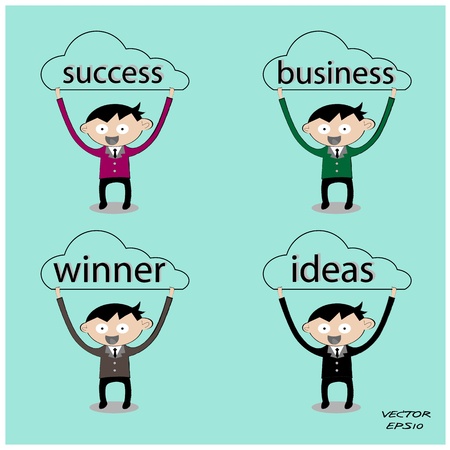1. The Mindset Shift: Focusing on Outcomes over Hours
In the fast-paced US startup scene, productivity isn’t about clocking in endless hours at your desk. It’s about making sure every minute counts toward real results. American entrepreneurs are changing the game by shifting their focus from just working hard to working smart.
Why Outcomes Matter More Than Hours
Old-school hustle culture says you have to grind 24/7 to succeed. But today’s top founders know that nonstop work often leads to burnout, not breakthroughs. Instead, what really works is setting clear goals and measuring progress by outcomes—not time spent.
How US Entrepreneurs Beat the ‘Hustle Culture’ Myth
| Traditional Hustle | Modern Approach |
|---|---|
| Working late nights and weekends | Prioritizing high-impact tasks during core hours |
| Measuring effort by hours worked | Measuring success by results achieved |
| Saying yes to every opportunity | Focusing on projects aligned with clear goals |
| Battling burnout and fatigue | Building routines that support long-term energy and creativity |
Setting Clear Goals Like a US Entrepreneur
The best US startups use specific, measurable goals to stay on track. Instead of vague plans like “grow my business,” they aim for targets such as “increase monthly active users by 20% in Q2.” This clarity helps teams prioritize tasks that move the needle instead of getting bogged down in busywork.
Quick Tip: Use the SMART Framework
- Specific: Define exactly what you want to achieve.
- Measurable: Make sure you can track your progress.
- Achievable: Set realistic but challenging targets.
- Relevant: Align goals with your business mission.
- Time-bound: Set a deadline to keep up momentum.
This outcome-focused mindset is helping US entrepreneurs make smarter decisions, avoid burnout, and build businesses that last.
2. Leveraging Tech Tools: Apps and Automations That Actually Save Time
If you’re running a startup in the US, chances are your to-do list is never-ending. That’s where productivity tools and smart automations come in handy. The right tech can save you hours each week, letting you focus on what really matters—growing your business. Here’s a look at the most popular apps and integrations that American entrepreneurs swear by.
Startup-Friendly Productivity Tools
| Tool/App | Main Use | Why Entrepreneurs Love It |
|---|---|---|
| Slack | Team Communication | Instant messaging, channels for different projects, tons of integrations |
| Trello | Project Management | Visual boards make tracking tasks easy and collaborative |
| Notion | Workspace Organization | All-in-one docs, wikis, and task lists—perfect for fast-moving teams |
| Calendly | Scheduling Meetings | No more back-and-forth emails; just share your link and book it! |
| Zapier | Automation & Integration | Connects your favorite apps so routine tasks run themselves |
| Airtable | Database & Project Tracking | Spreadsheets with superpowers—customizable for any workflow |
| Google Workspace (Gmail, Docs, Drive) | Email & Document Collaboration | The backbone of many startups for its reliability and sharing features |
| Loom | Video Messaging & Updates | Easily record quick explainer videos instead of long meetings or emails |
| HubSpot CRM | Customer Relationship Management | User-friendly, free starter plans, great for organizing sales pipelines and contacts |
| Asana | Task & Workflow Management | Simplifies complex project tracking with timelines and reminders |
Automations: Let Robots Handle the Busywork!
Automating repetitive tasks can seriously level up your productivity. In the US startup world, founders use these automations to save time:
- Email Sequences: Tools like Mailchimp or HubSpot automate follow-up emails to new leads or customers.
- Zaps via Zapier: Automate everything from posting social media updates to adding new form submissions directly into your CRM or project manager.
- Scheduling Automation: Calendly automatically syncs with your calendar and sends reminders to reduce no-shows.
- Status Updates: Slack bots can send daily standup reminders or summarize key updates for the team.
Real-World Example: Connecting Tools for Maximum Efficiency
A typical US startup might connect Google Forms (for lead collection), Zapier (to automate sending those leads into Airtable), and Slack (to notify the sales team instantly). This setup means no manual data entry—just actionable info delivered exactly where it’s needed.
The Bottom Line on Tech Tools in the US Startup Scene (No Conclusion!)
The best tools are the ones that actually fit how your team works. Don’t be afraid to experiment! Start with free plans, watch a few YouTube tutorials, and pick what makes your day smoother. With so many great options out there, there’s never been an easier time to work smarter—not harder—as an entrepreneur in America.

3. Mastering the Art of Delegation and Outsourcing
The American Way: Building Efficient Teams
In the US startup scene, entrepreneurs understand that success is a team sport. Instead of trying to do everything themselves, they focus on building strong teams where every member has a clear role. This approach helps founders stay focused on their strengths while others handle tasks they may not be as skilled at. Creating an environment based on trust and open communication is key to making this work. When everyone knows what’s expected and feels empowered, productivity soars.
Leveraging Freelancers for Flexibility
Startups in America often tap into the huge pool of freelancers and contractors to get things done quickly and cost-effectively. From web development to content creation, using platforms like Upwork or Fiverr lets entrepreneurs find the right talent for both core and non-core tasks without the long-term commitment of hiring full-time staff. This flexibility is a game-changer, especially when you need specialized skills or want to scale up fast without breaking the bank.
When to Delegate vs. Outsource
| Task Type | Delegate (Team) | Outsource (Freelancer/Agency) |
|---|---|---|
| Core Business Activities | Yes – Keeps knowledge in-house | Sometimes – For expert advice or overflow work |
| Specialized Projects | No – May lack expertise internally | Yes – Tap external specialists |
| Routine Admin Tasks | No – Not best use of in-house talent | Yes – Save time and costs |
| Customer Support | If building brand loyalty is key | If scaling quickly or handling volume spikes |
Tips for Effective Delegation and Outsourcing in US Startups:
- Define Clear Expectations: Always outline goals, deadlines, and deliverables before handing over any task.
- Use Project Management Tools: Tools like Trello, Asana, or Slack keep everyone aligned and make progress easy to track.
- Cultivate Trust: Give your team autonomy but check in regularly. For freelancers, start with small projects to build confidence.
- Communicate Openly: Encourage feedback and regular updates so nothing falls through the cracks.
- Focus on Impact: Keep your attention on high-value activities that move the business forward while delegating or outsourcing everything else.
This American approach allows startups to stay nimble, grow faster, and avoid burnout by letting entrepreneurs spend their energy where it matters most.
4. Time Management Tactics: Blocking Your Day Like a Pro
If you’re running a startup in the US, your to-do list is probably a mile long—and your calendar feels even crazier. The secret sauce of many successful founders? Smart time management. Let’s look at three proven scheduling techniques that help busy American entrepreneurs get more done without burning out.
Time Blocking: Control Your Calendar
Time blocking is all about dedicating specific chunks of your day to certain activities—think of it as making appointments with yourself for deep work, meetings, or even breaks. Instead of letting emails and Slack messages dictate your pace, you plan ahead and stick to those blocks as much as possible. Many US founders find this method helps them protect their focus and avoid endless context switching.
Sample Time Blocking Schedule
| Time | Activity |
|---|---|
| 8:00 – 9:30 AM | Deep Work (Product Development) |
| 9:30 – 10:00 AM | Email & Slack Check-In |
| 10:00 – 12:00 PM | Meetings / Calls |
| 12:00 – 1:00 PM | Lunch Break / Walk Outside |
| 1:00 – 3:00 PM | Deep Work (Strategy Planning) |
| 3:00 – 3:30 PM | Email Follow-Up |
| 3:30 – 5:00 PM | Admin Tasks / Team Check-Ins |
The Pomodoro Method: Sprint, Then Rest
This classic productivity hack comes from Italy but is super popular among US-based founders. Here’s how it works: set a timer for 25 minutes (that’s one “Pomodoro”), focus on one task until the timer rings, then take a five-minute break. After four Pomodoros, take a longer break (about 20-30 minutes). This method keeps you energized and helps prevent burnout—perfect for those marathon startup days.
POMODORO METHOD AT A GLANCE:
| Step | Description |
|---|---|
| 1. Set Timer (25 mins) | Work on one task without distractions. |
| 2. Short Break (5 mins) | Stretch, grab water, relax. |
| 3. Repeat 4 times | (= 2 hours) |
| 4. Long Break (20-30 mins) | Recharge before the next round. |
Batching Tasks: Group Similar Work Together
If you keep jumping between writing code, answering emails, and meeting investors, your brain never gets into a groove. Batching means grouping similar tasks together—for example, replying to all emails in one block or making all sales calls back-to-back. This technique cuts down on mental fatigue and helps you get into “the zone.” For many US founders juggling multiple roles, batching is a real game changer.
BATCHING EXAMPLES FOR STARTUP FOUNDERS:
| Batched Task Type | When to Batch? |
|---|---|
| Email Responses | Twice daily (AM & PM) |
| Team Meetings/Standups | Mornings or early afternoons only |
| Investor Updates/Reporting | Friday afternoons weekly |
TIPS FOR SUCCESSFUL TIME MANAGEMENT IN THE US STARTUP SCENE:
- Protect your most productive hours for deep work—don’t let meetings eat up your mornings if that’s when you’re sharpest.
- Add buffer time between blocks so you don’t run behind schedule.
- If something urgent pops up (and it will), reschedule rather than skip your important work blocks entirely.
The right scheduling method depends on your personal workflow, but these tactics can help any US entrepreneur take back control of their day—one block at a time.
5. Building Resilience: Work-Life Balance and Preventing Burnout
Why Work-Life Balance Matters in the US Startup Scene
In recent years, American entrepreneurs have started to rethink what success really means. It’s no longer just about hustling non-stop or pulling all-nighters to grow a business. Instead, more founders are realizing that mental health and personal well-being are key ingredients for lasting productivity and creativity. By focusing on work-life balance and actively preventing burnout, entrepreneurs can achieve long-term success—without sacrificing their happiness or health.
Redefining Success: Prioritizing Mental Health
For many startup founders in the US, taking care of your mind is just as important as hitting your business goals. This cultural shift is reflected in how entrepreneurs talk about their routines and company cultures. Practices like regular exercise, meditation apps, and therapy sessions are becoming mainstream in founder circles. Many US startups now offer mental health days, flexible schedules, or even company-sponsored counseling services.
Common Strategies for Supporting Mental Health
| Strategy | Description | Popular Tools/Examples |
|---|---|---|
| Mindfulness & Meditation | Reducing stress through daily mindfulness practices | Headspace, Calm, Insight Timer |
| Therapy & Counseling | Talking with professionals to manage stress or anxiety | BetterHelp, Talkspace |
| Exercise & Movement | Staying active to boost mood and focus | Peloton, ClassPass, local gyms |
| Mental Health Days | Taking time off specifically for self-care | Company policies supporting personal days off |
Setting Boundaries: Saying No Is Okay!
A big part of preventing burnout is learning to set boundaries—both at work and at home. American entrepreneurs are getting better at saying “no” to meetings that aren’t necessary, turning off notifications after hours, and protecting their weekends. Some even use time-blocking techniques or “no meeting” days each week so they can focus on deep work without distractions.
Boundary-Setting Tips for Entrepreneurs
- Define work hours: Clearly communicate when you’re available—and when you’re not.
- No-email zones: Set times when you don’t check work emails (like evenings or during family meals).
- Sabbaticals: Take extended breaks every year to recharge—even if it’s just a week away from the screen.
- Delegate: Trust your team with tasks so you’re not doing everything yourself.
Sustainable Productivity: Small Steps Add Up
The new approach among US founders is all about sustainability—working smarter, not harder. Instead of burning out during crunch times, entrepreneurs focus on steady progress and building habits that last. This might mean using productivity tools to automate repetitive tasks or setting realistic weekly goals rather than overloading every day.
Sustainable Productivity Hacks That Work in the US Startup World
| Hack | Description | Benefits |
|---|---|---|
| Batched Tasks | Grouping similar tasks together to save time and energy. | Less context-switching, more focus. |
| No Meeting Fridays | A whole day dedicated to deep work with no meetings allowed. | Makes space for big-picture thinking and creative work. |
| Dedicating Breaks for Hobbies | Using downtime for activities that bring joy (art, music, sports). | Keeps motivation high and stress levels low. |
| Automating Admin Tasks | Using software to handle scheduling, invoicing, or emails. | Saves time for strategic work and prevents overwhelm. |
The Bottom Line: Thriving Over Surviving
The most successful American entrepreneurs today are those who see self-care as a strength—not a weakness. By making mental health a priority, setting clear boundaries, and embracing sustainable productivity hacks, they’re building businesses that last—and enjoying life along the way.


